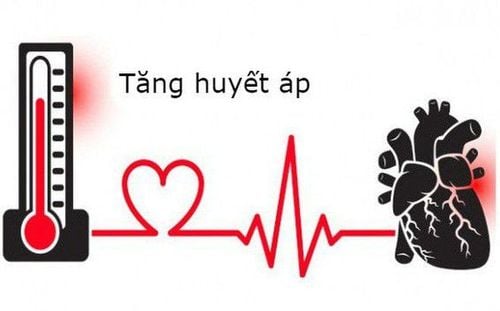This is an automatically translated article.
Negative emotions including anger are a natural, instinctive human response to threats. Some anger is necessary for every person's survival. However, when anger is left unchecked, it becomes harmful to physical and mental health.1. Negative emotions
Anger is a very powerful emotion, it can stem from feelings of frustration, hurt, discomfort, or failure. It is a normal human emotion that can range from mild irritation to strong anger.Anger can be harmful or helpful, depending on how it is expressed. Knowing how to recognize and express anger in appropriate ways can help people achieve goals, handle emergencies, and solve problems. However, problems can affect mental and physical health if people do not recognize and understand their anger.
Anger can be expressed in many different ways. Several styles of anger are involved:
Extroverted This type of anger involves expressing your anger and aggression clearly. It can include behaviors such as: shouting, cursing, throwing or breaking things, or being verbally or physically abusive towards others.
Introversion This type of anger is directed at the angry person himself. It involves negative self-talk, self-denial of things that make you feel happy or even basic needs. Self-harm and isolating yourself from others are other ways that anger can be directed inward.
Passive This type of anger involves using subtle and indirect techniques to express your anger. Examples of this passive-aggressive behavior include: treating those around you with silence, sulking, sarcasm...
Trắc nghiệm: Bài kiểm tra chỉ số trí tuệ cảm xúc (EQ) của bạn
Chỉ số trí tuệ cảm xúc Emotional Quotient (EQ) là một chỉ số dùng để nói lên trí tưởng tượng, đánh giá và cảm xúc của một con người. Hãy làm bài trắc nghiệm sau để biết chỉ số EQ của bạn là bao nhiêu?
Nguồn tham khảo: webmd.com

2. The dangers of suppressing negative emotions
Anger that is suppressed means that it cannot be released can be an underlying cause of anxiety and depression. Anger that is not expressed appropriately can disrupt relationships, affect thinking and behavior, and create many physical problems.Chronic (long-term) anger has been linked to health problems such as: high blood pressure, heart problems, headaches, skin disorders and digestive problems. In addition, poorly managed anger can be linked to problems caused by alcohol and drug abuse, crime, sexual abuse, and other violent behaviors.

3. Negative control steps
When you start to feel angry, learn to control your emotions by: trying deep breathing, positive self-talk, or stopping thinking about the anger. Breathe deeply from the diaphragm. Slowly, calmly repeat a word or phrase like "relax". Repeat it to yourself while breathing deeply until the anger subsides. Avoiding alcohol or drugs or illegal substances can make you more likely to act out of anger on impulse. Although expressing anger is better than holding it back, anger should be expressed in an appropriate way. Frequent tantrums are often counterproductive and cause problems regarding your feelings towards the other person. If you have trouble recognizing negative emotions when you are having angry thoughts, write down these feelings and try to find the best in your relationships with others. Outbursts of anger also put a strain on the nervous and cardiovascular systems and can make health problems worse. Learning to manage negative emotions is a healthy way to express one's feelings, needs, and preferences. Seek support from others. You can tell others how you feel and you are trying to change your behavior. Plus, try to think positively by putting yourself in the other person's shoes. Or you can learn to laugh at yourself to see positive images. Practice good listening skills. Listening can help improve communication and can facilitate a sense of trust between people. This trust can help you deal with potentially negative emotions. Learn to assert yourself, express your feelings calmly and directly without becoming defensive, antagonistic, or emotional. Consult assertiveness self-help books or seek help from a professional therapist to learn how to use assertiveness and anger management skills. If you believe that your anger has gotten out of control and it can negatively affect your life and relationships. Seek the help of a mental health professional. A psychologist or mental health professional can work with you to better understand the causes behind your anger and help you change your thinking and behavior. They can help you deal with anger appropriately. However, it's important for you to choose a therapist carefully that can help you improve your mental health while managing negative emotions.In short, anger is a normal emotion, but if anger seems to be out of control, it can affect relationships as well as problems with the body's health. Identifying this condition and taking appropriate measures will help control negative emotions better.
Please dial HOTLINE for more information or register for an appointment HERE. Download MyVinmec app to make appointments faster and to manage your bookings easily.
Reference source: webmd.com












